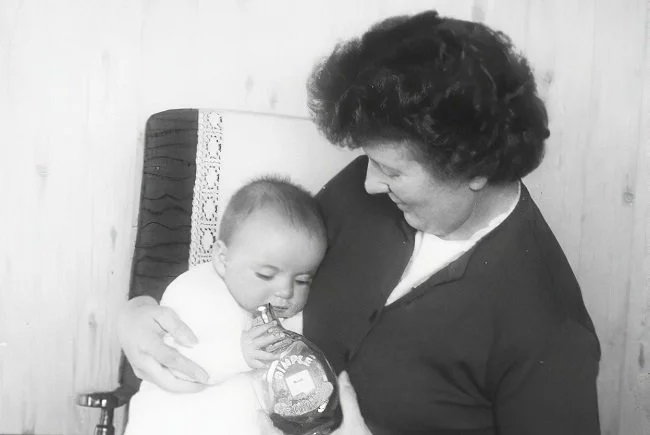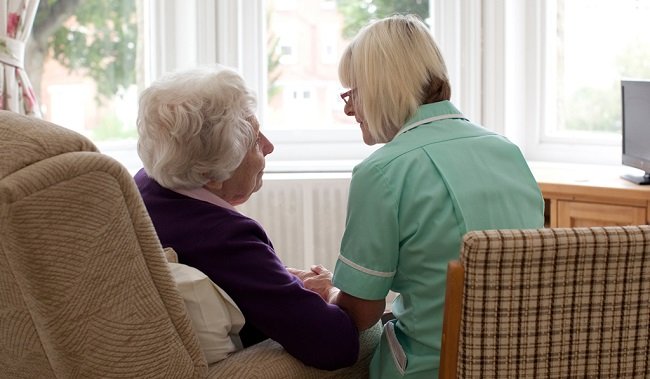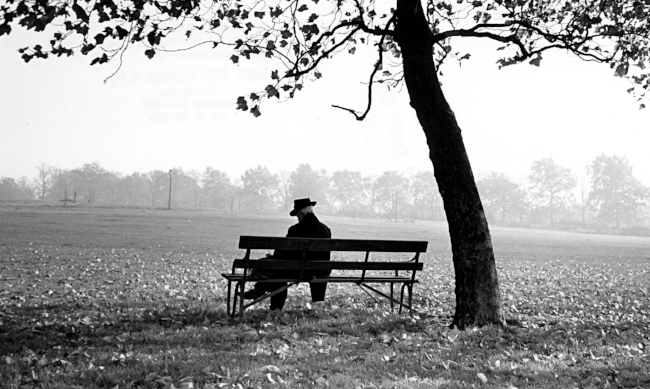Caring for the Elderly: Part 3
A stylised depiction of old age and caring, far removed from the reality.
I have written in the past about caring for the elderly. I have approached the subject from a personal perspective, as a carer with two disabled octogenarian parents, as well as considering the broader needs of a society with an ageing population. As it has been two years since I formally became a carer to both my parents, I thought I’d share my experiences on the many challenges that my family has faced over the last twenty-four months. I find doing so beneficial and maybe my anecdotes may be of value to others in a similar situation. As I’ve said in my original post, caring for a loved one is something we all potentially face at some point in our lives, and with an ageing population it becomes statistically more likely each year.
At the end of March 2017, my Father was discharged back to the care of his local Doctor. He had received six months of both physical and speech therapy via various health visitors and outpatients’ clinics after leaving hospital in October 2016. Despite the severity of his second stroke, the regular visits certainly improved his speech initially. However, once these stopped I noticed that he did not continue with any of the physical or vocal exercises he had been taught, despite encouragement from myself and my Sister. As a result, my hopes of maintaining the status quo have proven rash. My Father’s physical health and cognitive abilities are slowly declining. He cannot retain information and can no longer use his computer effectively. He lacks the manual dexterity to use a mouse and keyboard and his poor eyesight further compounds matters. Thus, his leisure activities are diminishing. He mainly watches familiar TV programs and listens to audio books,
Both my parents have limited mobility and can only walk very short distances. Visits to the Doctors and such like (of which there are many each month) require the use of a wheelchair, which then requires the booking of a Black Cab. Thankfully, as both are registered disabled and in receipt of the higher rate of Attendance Allowance, they qualify for The London Taxi Card scheme which provides them both with an allowance of 60 subsidised journeys each year. Sadly, trips out are usually functional, rather than leisure orientated. My Mother had an undiagnosed stroke roundabout Easter 2017 that has damaged her eyesight and impaired her hearing. However, she can still conduct her own business at the hairdressers which she visits each week. My Father suffers from chronic motion sickness so long taxi journeys are problematic. Even being in the wheelchair is now problematic. During Summer and Autumn, I tried to encourage him to walk short distances but his habitual falling over has effectively ended such plans.
Thus, both of my parents are increasingly housebound with a decreasing list of activities that they can pursue. I find this particularly tragic, as old age and infirmity has robbed them both of their favourite pastimes. My Father was an academic and use to read prodigiously. He liked advanced Mathematics and use to do calculus for pleasure. He can now just about read the newspaper and seldom remembers any once he’s finished. The one thing he longs to do is go out into the world and interact with people. Yet he cannot do so unattended and his poor speech and emaciated physique further complicates matters. My Mother is similarly limited in her social activities due to her lack of mobility. Her passion has always been gardening which she now has to enjoy via the help of a professional gardener. Hence both of them have lifestyles with very specicifc boundaries. Where myself and my sister can provide logistical and administrative support, what my parents really crave is companionship during the day.
Managing a household and day to day life can be challenging enough when you’re relatively young and healthy. For both my parents has naturally becomes a more complex matter. The two key factors I have found to keep things ticking over, are a well-maintained routines and communication. All appointments and trips out are planned in advance and noted on multiple calendars. The most important of which hangs in my parents lounge with everything noted in bold, easy to read text. All medication is logged upon receipt, with renewals dates determined and noted in advance. There is a white board in my Father’s bedroom for the morning and night nurses to leave messages regarding medicine and such like. I open all mail and correspondence for my parents and most bills and regular invoices are now paid by monthly direct debit. Paper work is filed after it has been actioned and I only trouble my parents with essential financial matters. However, it is important for both of them to maintain a sense of involvement in their own affairs, so they are included in all discussions and decisions and naturally have final say in how things are done. However, to assist myself and my sister in conducting business upon their behalf, we have had are names added to various utility accounts and services, so there are no security issues when either of us phone these companies.
There is often a mindset common to the older generation which is driven by such sentiments as “don’t make a fuss”, or “not wanting to be a burden”. Both my parents were children during World War II and are fiercely independent. They come from an era where personal responsibility was paramount to the point where sometimes pride would cause them to refuse legitimate help. However, the reality of their lives has tempered this outlook and I have actively encouraged both my parents to take whatever assistance is available. They have paid their taxes and contributed towards society in various ways during their lives, so I have convinced them that the whole situation is simply a matter of “quid pro quo”. Hence, they have claimed Attendance Allowance and have both qualified for it at the higher rate. Extra money doesn’t make up for their loss of independence, but the funds pay for practical things that improve their life such as a stair lift, disabled friendly showers and a multitude of grab handle strategically placed around the home. My Father greatly enjoys the mobile library that calls once a month and provides him with audio books. It should be noted that this is run purely by volunteers and receives very little local authority funding. My Mother likes the relative freedom her taxi card provides and enjoys her weekly trips to the hairdresser.
Finally, both my parents are very mindful of the roles carers play and have been insistent that both my Sister and I do not give up too much of our personal time and maintain our respective hobbies and interests. In 2016 I was going to close this blog, but my Mother was adamant that I did not give up and continued writing. As a carer it is important to recognise your personal limitations and not to beat yourself up, trying to do absolutely everything. A fatigued, stressed or demoralised carer is of no use to anyone. Sometimes you have to say no or draw lines in the sand regarding what you will or will not do. At present, my family is currently looking into respite care for a week, so we can firstly refurbish my Father’s bedroom and make it more user friendly. Secondly, we have recognised that everyone needs a break and a good night’s sleep. We are currently awaiting to see if we meet the criteria for the local authorities to help us. If not, we will look at alternatives. Such is the nature of caring. Despite all the planning and organising, it remains a fluid situation that can change at any time. In some respects, recognising that helps invaluably. As does simply taking time out and sharing one’s thoughts.


















